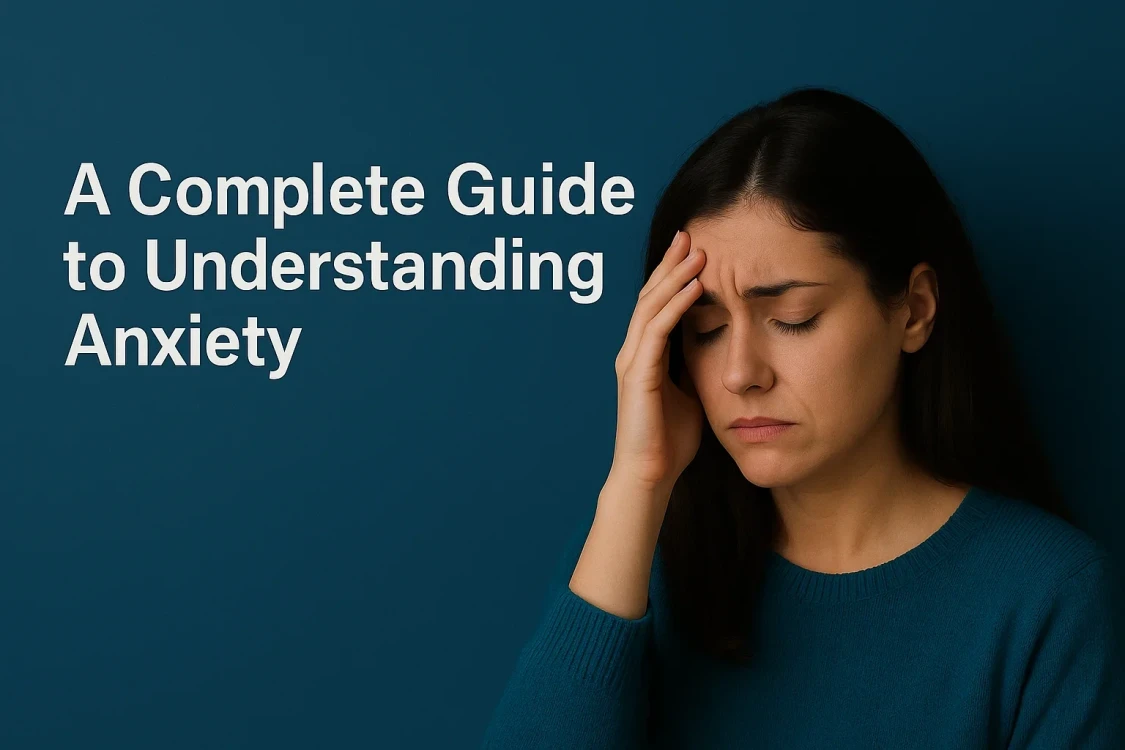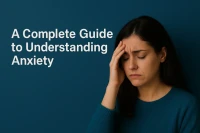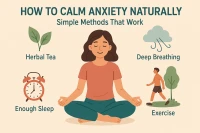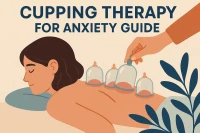Anxiety touches millions of lives every single day. You're not alone if your heart races before a big test. Many feel anxious, making sleep hard to find. Everyone feels nervous now and then. But anxiety is a real issue when those worried feelings stick around and disrupt your daily life. Understanding anxiety is the first step toward feeling better and taking back control.
What is Anxiety? Understanding Normal Worry vs Anxiety Disorders
Anxiety is your body's natural alarm system that kicks in when you sense danger. Think of it like a smoke detector in your house - it's supposed to warn you when something is wrong. Normal worry happens when you have a math test tomorrow or meet new people. But anxiety disorders are different. They are like having a smoke detector that goes off even when there is no fire.
The World Health Organization states that anxiety disorders affect over 264 million people worldwide. The American Psychological Association says anxiety is a disorder. It occurs when worry is too intense and happens too often. This level of anxiety disrupts your work, study, or time with loved ones. Anxiety disorders are different from everyday stress. While stress comes and goes, anxiety lingers. It can turn simple tasks into significant challenges.
Types of Anxiety Disorders: Understanding Different Forms of Anxious Feelings
People experience anxiety in different ways, and doctors have identified several main types:
Generalized Anxiety Disorder (GAD): Constant worry about everything, even without real danger.
Social Anxiety Disorder: Intense fear of judgment, making social situations extremely uncomfortable.
Panic Disorder: Sudden terror episodes with chest pain, sweating, and breathing difficulties.
Specific Phobias: Extreme fear of particular objects like spiders, heights, and flying.
Obsessive-Compulsive Disorder (OCD): Unwanted thoughts causing repetitive behaviors like excessive washing.
Each type affects people in unique ways. However, they all cause distress, making daily activities harder than they should be.
Common Causes of Anxiety: What Triggers Worried Feelings and Fear
Anxiety has many causes. It often comes from a mix of different factors. Knowing what causes anxiety can help you understand your feelings.
Biological factors play a significant role. You can inherit traits like your mom's eyes or your dad's height. You might also inherit a tendency for anxiety. Brain chemistry plays a role, too. When brain chemicals get out of balance, it can cause anxiety.
Environmental factors are equally important. Stressful events, such as changing schools, parents divorcing, or losing a loved one, can lead to anxiety. Even positive changes like starting a new job can sometimes cause worry. Childhood experiences, such as trauma or stress at home, can raise the risk of anxiety later on.
Medical conditions and substance use can contribute too. Some health problems, like heart conditions or thyroid issues, can cause anxiety-like symptoms. Caffeine, alcohol, and certain medications can also make anxiety worse.
Symptoms of Anxiety: Physical and Emotional Signs You Should Know
Anxiety impacts your mind and body. It can cause scary symptoms, especially if you don't know what's going on.
Physical symptoms include:
- Racing or pounding heartbeat
- Sweating, especially on palms or forehead
- Trembling or shaking hands
- Feeling short of breath or like you can't get enough air
- Muscle tension, especially in the neck, shoulders, or jaw
- Headaches or stomach aches
- Feeling dizzy or lightheaded.
Emotional and mental symptoms include:
- Racing thoughts that jump from worry to worry
- Feeling restless or on edge all the time
- Having trouble concentrating or focusing
- Irritability or feeling easily frustrated
- Sleep problems - either difficulty falling asleep or staying asleep
- Constant worry about things that might go wrong
- Feeling like something terrible is about to happen.
These symptoms can be mild or severe. They often affect each other. Physical symptoms may increase your worries, and worried thoughts can worsen physical symptoms.
How to Cope with Anxiety: Practical Tips for Managing Worried Thoughts
Anxiety is treatable! There are many effective ways to manage your worries and take back control of your life.
Professional Treatment:
Therapy, like Cognitive Behavioral Therapy (CBT), helps you spot anxious thoughts. Then, you learn better ways to think about things. A therapist can show you ways to handle anxiety. They can also help you understand what causes your symptoms. Talking to a counselor helps many people feel better. They gain valuable tools for daily life.
Medication can also be helpful for some people. Doctors may prescribe SSRIs, such as sertraline or fluoxetine. These medicines help balance brain chemicals that affect mood and anxiety. Always consult a doctor to find the proper treatment. Medication impacts everyone in unique ways.
Self-Care Strategies:
Regular exercise is one of the most powerful anxiety fighters available. Moving your body—walking, dancing, playing sports, or doing yoga—boosts your mood. It helps your brain release feel-good chemicals. This also reduces stress.
Good sleep habits make a huge difference, too. Aim for 8-9 hours of sleep each night, and try to go to bed and wake up at the same time every day. Create a relaxing bedtime routine without screens for at least an hour before sleep.
Mindfulness and breathing techniques can provide immediate relief during anxious moments. Try the 4-7-8 breathing method: breathe in for four counts, hold for 7, then breathe out for 8. This activates your body's natural relaxation response.
When to Seek Professional Help: Signs You Need Expert Support
Sometimes anxiety becomes too big to handle on your own, and that's completely okay. Recognizing when you need extra support is a sign of strength, not weakness.
If anxiety is affecting your school or work, talk to a mental health professional. Seek help if it harms your friendships or family relationships. If you're avoiding activities you once loved, reach out. If you have panic attacks, worry for weeks, or if anxiety disrupts your sleep or appetite, get professional help. It can make a real difference.
Anxiety can cause physical symptoms without an apparent medical reason, like headaches or stomach issues. A counselor, psychologist, or psychiatrist can help you manage these symptoms.
Remember, seeking help for anxiety is just like getting treatment for any other health issue. Always consult a qualified mental health professional for a proper diagnosis and treatment plan.
Final Thoughts
Living with anxiety can be tough, but you don't have to face it alone. Anxiety is common and treatable. Millions manage their symptoms successfully each day.
Anxiety can be managed with the right strategies, support, and sometimes professional help. Small steps, like deep breathing or talking to friends, can lead to significant improvements in your well-being. Reaching out to a counselor can also help.
You are stronger than your anxiety. With patience and the right tools, you can learn to manage your worries and live a happy, fulfilling life.





Comments